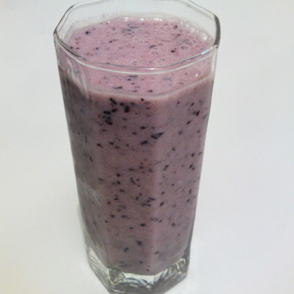
Vitamins
Betacarotene - Health Benefits
Betacarotene sub-menu
Date reviewed: 7 July 2015 | Date updated: 7 July 2015
Betacarotene is essential for good health. Some of the main health benefits for betacarotene are:
- Betacarotene helps the immune system fight off infection - betacarotene has an enhancing effect on the immune system due to its powerful antioxidant properties. It is necessary to activate the white blood cells used for fighting infection
- Preventing night blindness - betacarotene helps the eyes see better in the dark, because it tops up all the vitamin A in the retina, which is needed to enable the vision to function properly
- Preventing cataracts - betacarotene helps mop up the free radicals which damage the lens of the eye and cause cataracts in susceptible people
- Preserving eyesight - betacarotene helps prevent the condition age related macular degeneration (ARMD) which causes blindness in older people. Betacarotene does this by reducing levels of free radicals
- Betacarotene helps to lower LDL ("bad") cholesterol - studies show that betacarotene has a very protective effect on the whole cardiovascular system and can help to lower and prevent oxidation of LDL ("bad") cholesterol, while increasing levels of HDL ("good") cholesterol. High levels of LDL ("bad") cholesterol are implicated in heart disease and betacarotene reduces this risk
- Betacarotene protects the heart - studies show that people who eat foods high in betacarotene have fewer heart attacks and strokes. The Harvard university Physicians Health Study looked at the heart health of over 22,000 male doctors. This study showed that those doctors who took a betacarotene supplement every second day had a 50% less chance of heart attack, stroke and death than doctors who did not take a betacarotene supplement. The study also showed betacarotene supplements had a much better and more protective effect on the heart than aspirin
- Betacarotene may reduce risk of cancer - studies have shown that people who have low levels of betacarotene are generally more at risk of developing a number of cancers, while increased levels of betacarotene are associated with a lowered risk for many types of cancers. Studies show that higher levels of betacarotene are especially associated with 80% less risk of cervical cancer and 30% less risk of lung cancer. In other studies of patients with cancer, who were undergoing chemotherapy, the patients who were supplemented with betacarotene (and vitamin A) lived longer, had a better response rate and less side effects to the chemotherapy treatment than the patients who did not get any betacarotene (and vitamin A) supplements
- Betacarotene may help with HIV and AIDS - studies have shown betacarotene supplements used in conjunction with conventional drug treatment for people infected with the human immunodeficiency virus (HIV) increased the number of white blood and immunity (CD4+) cells responsible for fighting infection and preventing virus replication
Advertisement
Comments
Nutrition
Advertisement
Health Tools
Most popular website content

-
Silica
Silica is a trace mineral, good for the skin, bones and teeth...more 
-
Labyrinthitis
Labyrinthitis is a disease of the inner ear, causing swelling and pain...more 
-
Calorie Intake
The recommended daily intake of calories is different for each age group and gender...more

 Basics recipes
Basics recipes Breakfast recipes
Breakfast recipes Dessert recipes
Dessert recipes Dinner recipes
Dinner recipes Lunch recipes
Lunch recipes Snacks recipes
Snacks recipes



